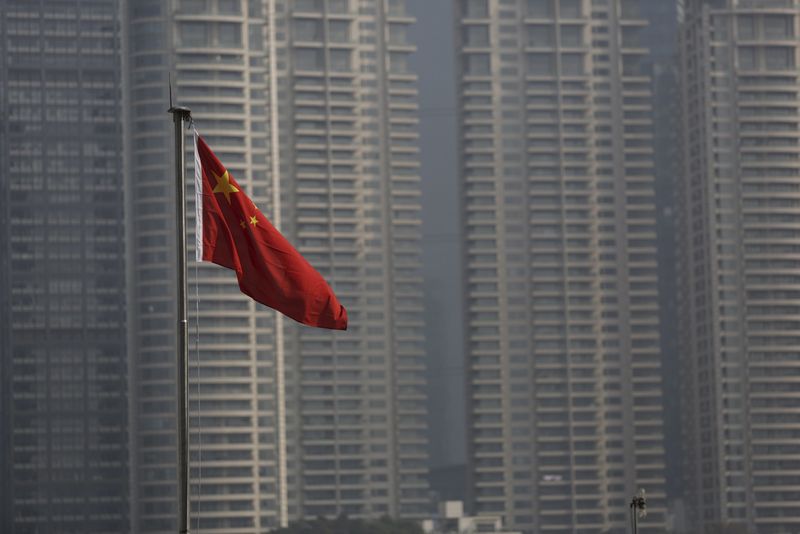Investing.com-- While China’s recent property stimulus measures presented a step in the right direction for the economy, Goldman Sachs (NYSE:GS) analysts warned that risks for the sector still persisted, and that China’s manufacturing sector was seeing signs of oversupply.
GS analysts said the world’s second-largest economy was still on track to meet its 5% gross domestic product target for 2024, amid strong manufacturing and exports, steady household consumption and improving inflation.
But the property market was still “very weak,” and that while the recent government measures for the sector were positive, the sector was nowhere close to seeing an immediate turnaround.
Beijing announced more loosening in house purchase restrictions through May, and was also seen instructing state governments to begin buying up excess inventory in the housing market.
GS analysts said property market fundamentals still remained weak, and flagged several challenges to Beijing’s execution of its new stimulus measures. They said that new funding measures announced by the government were “nowhere near” what was needed to offset a sustained decline in the market.
Implementations of the inventory shrinking policies also required pricing nuance, while a recovery of the property market also depended largely on household consumption behavior.
Manufacturing oversupply a growing issue
GS analysts also noted that China’s industrial and manufacturing sector was beginning to see increased signs of oversupply.
“Across industrial sectors, almost all face rising output and falling prices, a sign of oversupply,” GS analysts said.
They noted that recent increases in U.S. trade tariffs were likely to have little actual impact on Chinese exports, and that the country’s dominance in global manufacturing and huge trade surpluses were making its trading partners “uneasy.” China’s exports were expected to remain strong in the near-term.
“Over the medium term, however, as Chinese exports continue to gain market share overseas… we expect Chinese trade surpluses and global trade imbalances will build further, and that trading partners’ pushback will likely intensify,” GS analysts said.
China's stock markets saw a stellar bounce over the past nearly three months amid cheer over the new stimulus measures. But they fell sharply from 2024 highs in recent sessions, amid creeping doubts over the execution of the policy measures, as well as trade ructions with China.
